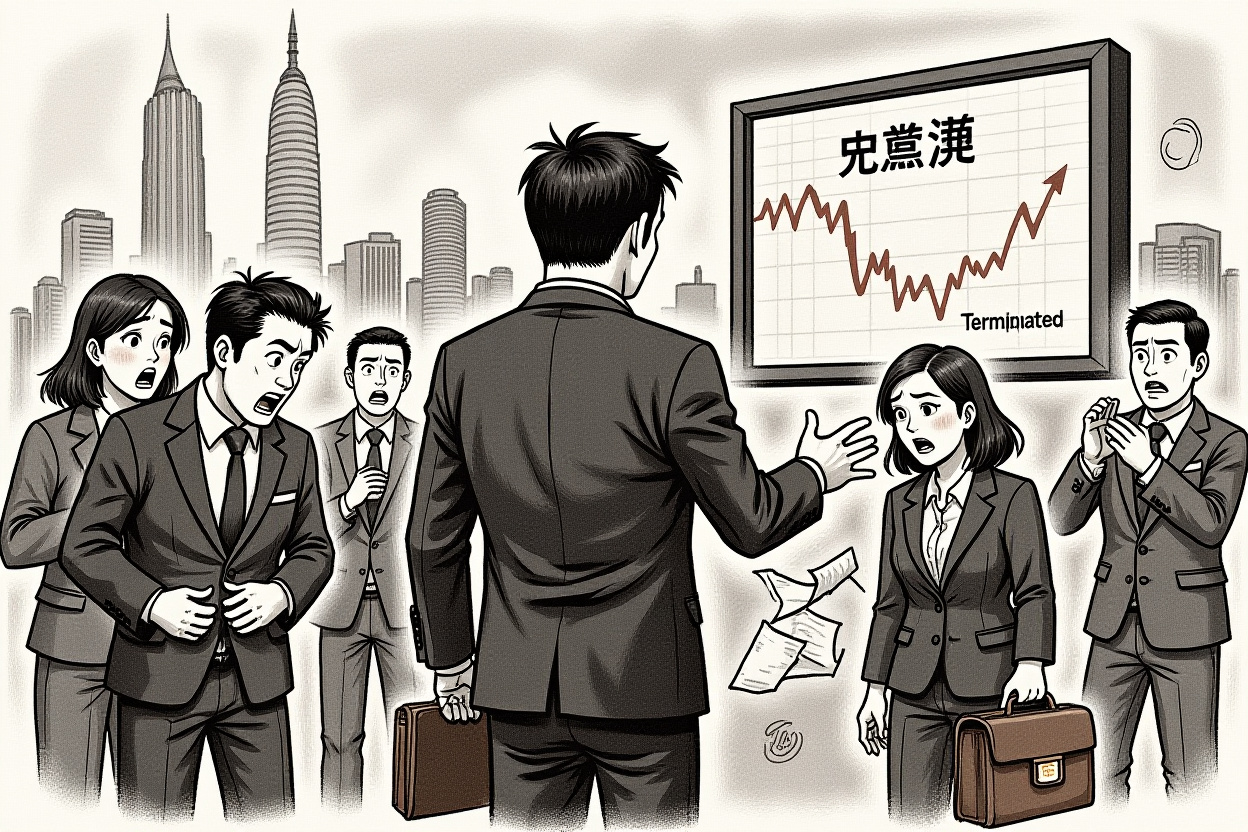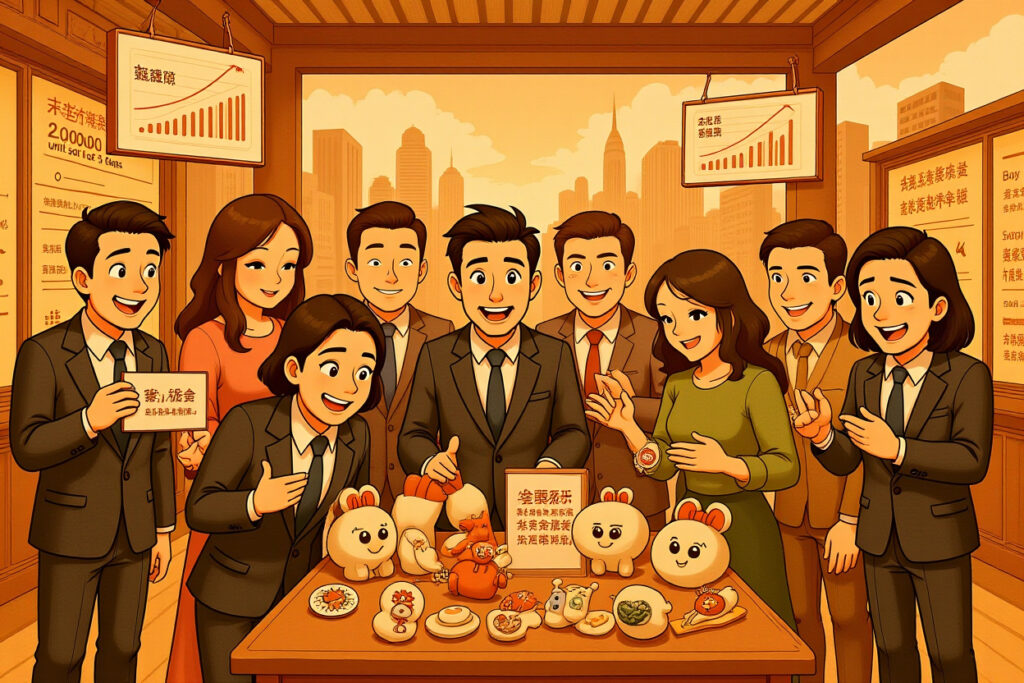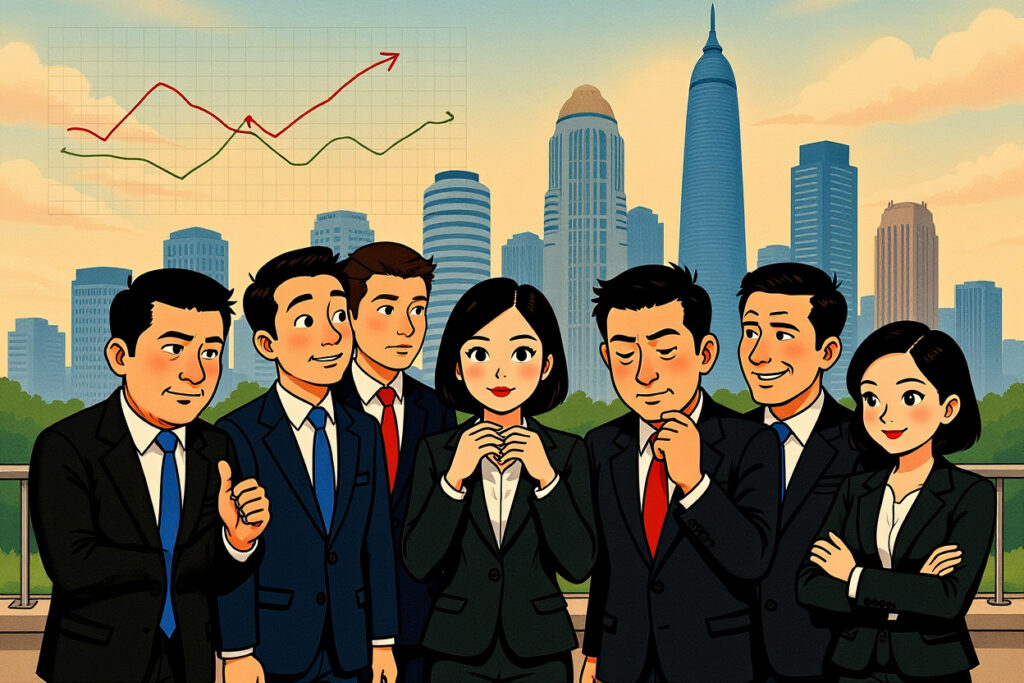The Rise and Fall of a Corporate Star
Wang Teng, the former General Manager of Xiaomi’s China Region Market Department, was once hailed as a ‘hexagonal warrior’—a term symbolizing his mastery in product development, market expansion, and brand marketing. At under forty years old and holding a Level 21 position, his career seemed unstoppable. However, in September 2025, Xiaomi issued an internal notice announcing his termination for ‘leaking confidential company information’ and ‘engaging in conflicts of interest.’ This incident has sent shockwaves through the business community, raising questions about the sustainability of the ‘internet celebrity executive’ model popularized by Lei Jun.
Wang Teng’s career was inextricably linked to Lei Jun, Xiaomi’s charismatic founder. Lei Jun’s strategy of turning executives into public figures provided Wang with a platform to shine. While not as prominent as Alibaba’s Jack Ma (马云) or Huawei’s Richard Yu (余承东), Wang Teng cultivated a significant online presence, often engaging in bold banter with competitors and leveraging internet culture to connect with consumers.
However, this very visibility became his downfall. His informal, approachable style—while effective for branding—blurred the lines between professional and personal conduct, ultimately leading to his dismissal.
The Double-Edged Sword of Executive Personal Branding
Lei Jun pioneered the ‘internet celebrity executive’ approach in China, leveraging his personal brand to drive Xiaomi’s marketing efforts. His active presence on social media, live streams, and public events humanized the company and fostered customer loyalty. This strategy proved highly successful, especially for a brand that started in the competitive mid-to-low-end market.
Other Chinese executives, such as Gree’s Dong Mingzhu (董明珠) and Baidu’s Qu Jing (璩静), have followed suit, embracing personal branding to enhance their companies’ visibility. However, this trend is not without risks. While Western executives like Apple’s Steve Jobs or NVIDIA’s Jensen Huang (黄仁勋) maintain a more reserved public presence, Chinese executives often operate as full-time PR representatives, engaging directly with consumers and media.
This heightened visibility increases the likelihood of missteps. Wang Teng’s case is a prime example: his informal interactions, including joking about ‘leaking secrets,’ eventually culminated in serious violations of company policy.
Case Study: Wang Teng’s ‘Leaking’ Incidents
Wang Teng had a history of inadvertently disclosing sensitive information. In 2022, he was fined 5,000 yuan for prematurely revealing the launch date of the Redmi K50. A year later, he leaked details about the Xiaomi 13 Ultra during a social gathering. These incidents, though seemingly minor at the time, reflected a pattern of behavior that conflicted with his role as a senior executive.
His informal style also extended to online interactions. In one notable instance, he responded to a user with Lei Jun’s profile picture by saying, ‘Don’t test me, Boss Lei—I’ll keep working hard.’ While playful, such exchanges risked undermining professional boundaries.
The Pitfalls of Blending Personal and Professional Roles
Executives who become ‘internet celebrities’ face unique challenges. Their dual roles as corporate leaders and public figures create inherent conflicts. On one hand, they must uphold company policies and maintain confidentiality; on the other, they need to engage audiences with relatable, often candid, content.
Wang Teng’s downfall underscores the difficulty of balancing these roles. His tendency to ‘show off’—whether to maintain media attention or bolster his personal brand—ultimately led to breaches of trust. Moreover, his involvement in PR activities exposed him to potential conflicts of interest, such as favoritism in allocating marketing resources.
This case is not isolated. Recent years have seen several high-profile failures among celebrity executives:
- Dong Mingzhu’s very public fallout with her protégé, Meng Yutong (孟羽童).
- Baidu’s Qu Jing, whose aggressive PR tactics backfired spectacularly.
- Huawei’s Richard Yu, whose catchphrase ‘far ahead’ became a internet meme, sometimes used mockingly.
These examples highlight the volatility of public perception and the risks of overexposure.
Corporate Governance in the Age of Social Media
Xiaomi’s handling of Wang Teng’s case reflects broader concerns about corporate governance. The company’s decision to terminate a high-performing executive just before a product launch indicates the seriousness of the violations. It also suggests a growing awareness of the need to enforce internal controls, even when dealing with popular figures.
For companies embracing the ‘internet celebrity executive’ model, clear role delineation is critical. Executives should not double as PR leads without robust oversight. Professional PR teams can provide a buffer, ensuring that messaging remains consistent and compliant while allowing executives to engage with the public in a controlled manner.
Moreover, companies must establish strict guidelines for online conduct, including:
- Clear protocols for handling confidential information.
- Regular training on conflict-of-interest policies.
- Monitoring of public interactions to prevent missteps.
Lessons from Western Counterparts
Western companies often keep executives’ public roles more limited. Figures like Tim Cook or Satya Nadella make occasional appearances but rely on dedicated PR teams for daily engagement. This approach reduces personal risk while maintaining brand consistency.
In contrast, Chinese companies’ reliance on executives for PR creates single points of failure. When a celebrity executive stumbles, the entire organization must scramble to manage the fallout.
The Future of Executive Branding in China
Wang Teng’s dismissal serves as a cautionary tale for Chinese companies leaning into the ‘internet celebrity executive’ trend. While personal branding can drive short-term gains, it carries long-term risks that outweigh the benefits. Public sentiment is fickle, and today’s beloved figure can quickly become tomorrow’s liability.
Lei Jun himself has faced increased scrutiny in recent years, with several controversies dampening his ‘everyman’ image. Although none were directly his fault, they illustrate the perils of overexposure. As the saying goes, ‘The more famous, the more troubles.’
Moving forward, companies should consider a more balanced approach:
- Limit executives’ personal branding efforts to strategic appearances.
- Invest in professional PR and marketing teams to handle daily engagement.
- Implement stricter governance frameworks to mitigate risks.
Key Takeaways for Businesses and Executives
Wang Teng’s story offers valuable lessons for companies and leaders alike:
- Personal branding is powerful but perilous. Executives must tread carefully to avoid conflicts between their public and professional roles.
- Corporate governance cannot be compromised for the sake of visibility. Strict policies around confidentiality and conflicts of interest are non-negotiable.
- The ‘internet celebrity executive’ model may need reevaluation. While effective in certain contexts, it is not a one-size-fits-all solution.
For entrepreneurs and executives, the message is clear: fame is fleeting, but integrity is forever. Building a sustainable brand requires more than viral moments—it demands discipline, foresight, and a commitment to ethical conduct.
As Xiaomi and other companies navigate this new landscape, they would do well to remember that the brightest stars often burn out the fastest. Balancing visibility with vulnerability is the key to long-term success.




